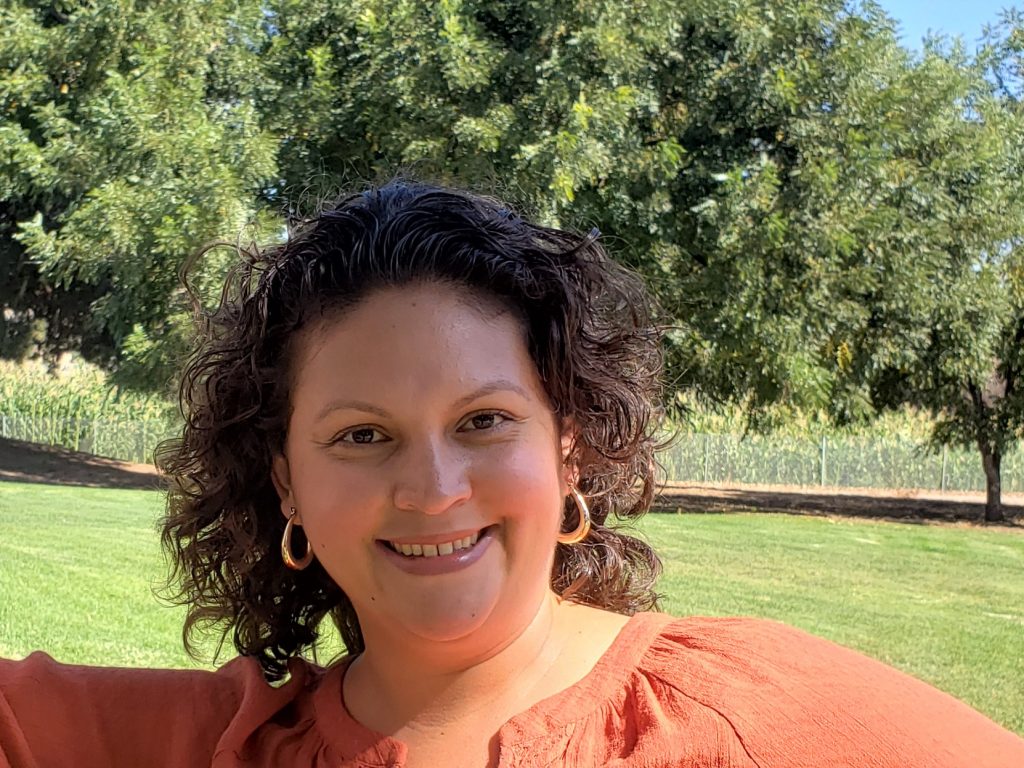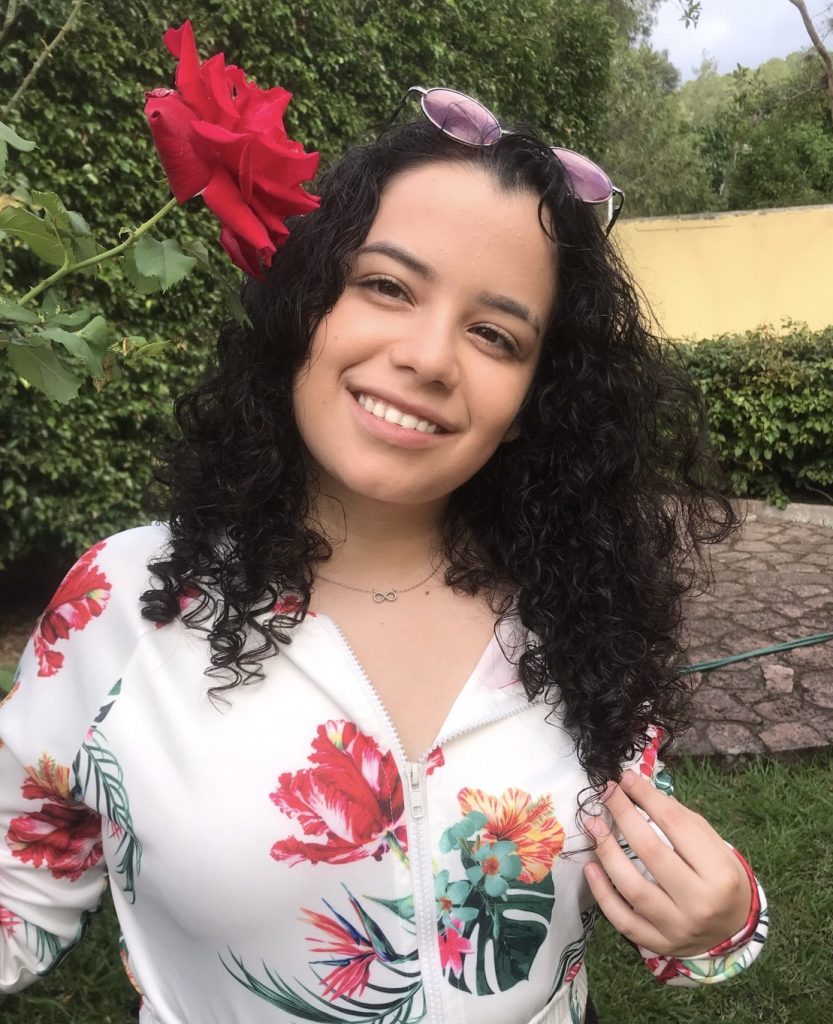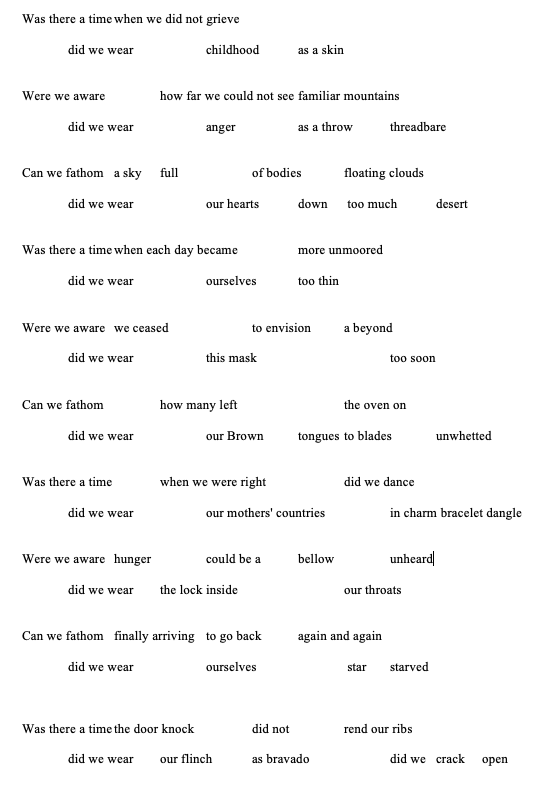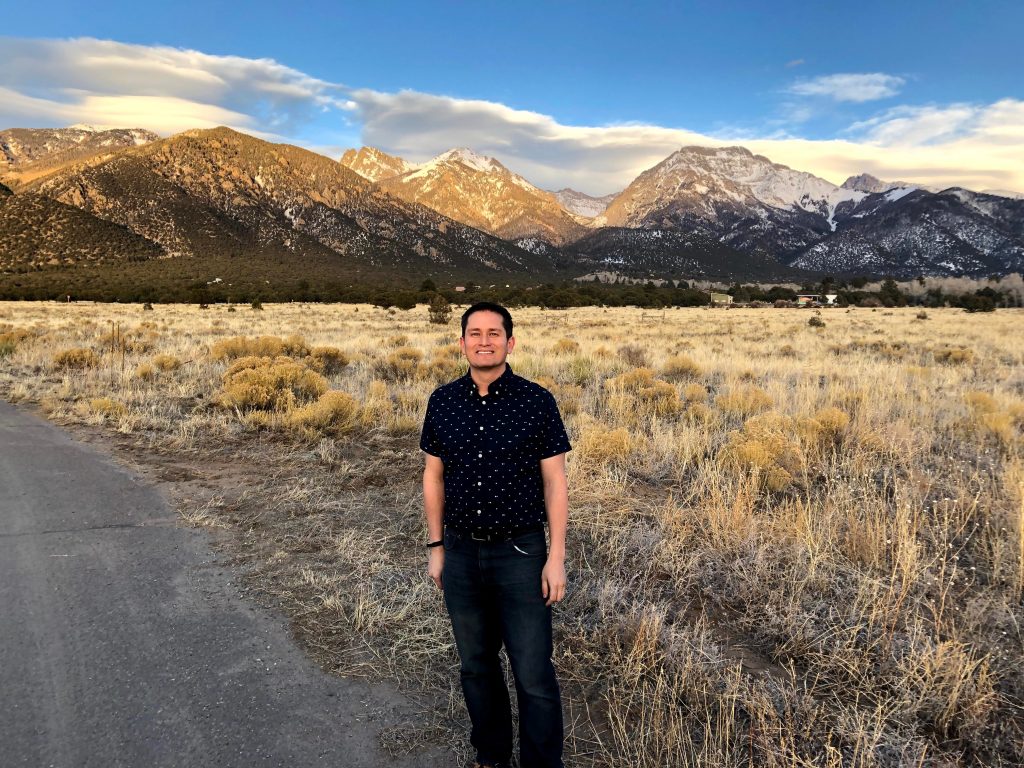By Sarah Dalton
#1
Signature Jones New York Wrap Dress
Product Description: The ever-flattering and flirty wrap dress in a bright fuchsia floral print accented by sky blue, charcoal grey, and golden yellow brushstroke-like marks. Knee-length, long sleeve. 95% polyester, 5% spandex. Dry clean only.

Fabulous Dress!! Customer: SarahD
I call this dress my waterlily dress because it reminds me of Monet’s famous Waterlily paintings if they were crossed with the bold, bright bougainvillea colors of a Latino neighborhood. Like a model on a catwalk, this dress struts and poses just hanging in the closet. It’s so stylish, so wild and alive with color. The wrap dress design tucks around the chest and hips, securing at the waist with a long belt enhancing that most coveted shape, the hourglass. People still give me compliments about this dress, even though they saw me in it at the last wedding. My mom complains that all my Facebook pictures look the same, and, for her, that must mean I don’t have enough clothes in my closet. It’s a genuine wrap dress, and, if it gets too windy, everything below the waist can burst open like Marilyn Monroe on the subway grates in Seven Year Itch. On the plus side, this means the dress accommodates a variety of body shapes.
3 Comments:
MsLinda: I’m torn between this dress and another, how did you decide to get this one?
SarahD: Serendipity. In my early 20s, usually around New Year’s, I used to sit on my bedroom carpet, women’s magazines fanned out around me, and spend hours thumbing through the glossy pages, carefully cutting out the pictures that I found beautiful. With Mod Podge and a sponge brush, I collaged these pictures into an artist’s sketchbook, a style inspiration book, before Pinterest, of course. It was a blueprint to create the style I wanted—sleek pencil skirt office suits for the professional-me; airy weekend dresses for the romantic-me; tight skirts with lush patterns for the confident-me; jewel-toned blouses to accent the brown-skin-me; statement necklaces for the playful-me. If my perfect sense of style existed on paper, I only needed to find something, anything, to magically manifest it. This serendipity has happened once with this dress, and once with a roll of wallpaper.
SarahD: Here’s the link to the wallpaper: https://www.anthropologie.com/shop/blazing-poppies-wallpaper
#2
Park Avenue SA Madrid White Dress with Black Embroidery
Product Description: Black and white offer a striking contrast in this feminine button-down, A-line dress. Knee-length, short sleeve. Vestido/Dress 100% lino/linen. Forro/Lining 100% algodón/cotton. Limpieza en seco/Dry clean only.

Classic European Glamour Customer: SarahD
Finally, more European designs! Very refreshing! Black details dance around the white linen backdrop. Black stitches give a vertical (and slimming) illusion up the front. Black embroidered floral cut-outs punctuate the hem and sleeves, and a black woven belt cinches at the waist. The accents are flattering and alluring. Not to mention, black and white never go out of style, right?
When I saw this dress on the sales rack honeymooning in Spain, it immediately reminded me of my favorite movie at the time, Under the Tuscan Sun, specifically that scene where Francis, the heroine, played by Diane Lane, has a dream to buy a white dress to visit her lover. In the dressing room, I gestured to my new husband to come over and look. I needed to lose ten pounds for the dress to fit perfectly, but the dress was made for me. I was in love with its potential. Back in California, I started to call it my “Under the Tuscan Sun” dress. Every woman needs a Little Black Dress. This is its perfect partner, the Little White One.
8 Comments
Anni: What a gorgeous dress! I’m trying to figure out what size to get. Would you be willing to give height, weight, and size?
SarahD: In 2009, when I bought it, I was 5’6” and 150 pounds. I got size 44. In 2016, after seven years of marriage, the death of a neighbor woman who was like my second mother, 2 children, two bouts of postpartum depression, I was 220 pounds. Nine months postpartum, I went down to 180. Now I’m back at 220.
Joanna L: Where have you worn the dress to?
SarahD: Technically, I’ve never worn it out of the house. Alone in the bedroom, I took out the dress and fingered the black details, thinking about Francis next to the ocean, waves spraying around her like confetti, her white, silk dress billowing in the wind. I tried on the dress and gauged myself in the mirror. My arms couldn’t lift past my shoulders without the sound and feel of fabric straining on the back of my armpits. The buttons at my breasts looked like they would burst when I breathed deeply. I sucked in my tummy and held my breath. When I sat on the bed, my stomach fat pushed through diamond-shaped holes or the buttons popped undone. The dress fit like a stretched out torture device. In the movie, following that epic ocean-dress moment, Francis arrives at her lover’s house and finds him with another woman. She leaves crying, heartbroken. All dressed up, looking like a modern day Audrey Hepburn and even she got rejected.
Tina: Are you planning on wearing it anytime soon?
SarahD: For now, the fantasy’s alive in my closet, protected by a thin, plastic sarcophagus. Why do I keep it? What do I hope to capture about myself when I can finally wear this dress? Francis’s sense of adventure, her I-should-know-better -but-I’m-in-love-and-I’m-going-to-drop-everything-and-run-after-it feeling, her elegance, her confidence, before the heartbreak, when hope makes all of us beautiful.
#3
Studio M Sheer Floral Halter Dress
Product Description: The luxury of silk in a sheer, floral paisley print halter dress with plunging neckline. Knee-length. Dress, 100% silk. Lining, 100% silk. Dry clean only.

This Dress Will Change Your Life Customer: SarahD
Proceed with caution (or not) because this dress is transformative, and don’t say I didn’t warn you! It is deceptively sexy because it’s a below the knee dress with a silhouette that slides along your curves, form fitting but not tight. And the silk! Smooth and liberating, like skinny dipping in the ocean. The high empire waist and halter top changes the dress from demure to sex goddess. A thin string is the only support for the girls, ladies, so there are two options: stick-on bra cups, which have always made my breasts look lopsided, or braless, which is not just for hippies anymore. The Venus in me was born from this dress. Here’s how I remember it:
It was December 2003, and I had just returned to my university from a year studying abroad in Chile. I left a country I loved and a man who broke my heart, before I could break his when my flight left. Over the next several months, I wrote thirty-five letters to him in my journal. On Valentine’s Day, the bold black letters of his name in my inbox made my heart gallop and my breath tremble. The fantasy became real, and suddenly, I was terrified. I opened the email and responded immediately. Heartbreak breeds scarcity thinking. A few days after that message, I ventured into an expensive hair salon and told the stylist, “I want my hair Halle Berry short.” With her 2002 Oscar, Halle was the trendsetter, the history-maker. The stylist took a pair of massive scissors and with drawn out snips, lopped off 12 inches of hair that I donated to Locks of Love. Twelve inches to let go of my first love and shed the dream of running away to live the expatriate life. Surprisingly, once I cut my hair, I acted more “feminine,” wearing dresses, skirts, even make-up. My mom told me I looked different, pretty. In September, with money from my first job post-graduation, I bought this dress. In October, I wore it for the first time after a night with a revolutionary lover. The morning after, I stood in front of the closet, my skin warm and naked after a shower. This dress beckoned me, and I didn’t feel the least bit intimidated by its siren song. My body could do that, and therefore, I could wear clothes that mirrored these confident and euphoric feelings. I had fallen in love with myself that morning and discovered how abundant love really is when I know where to look for it.
2 comments
Lady Lou: I bet you get lots of compliments when you wear this dress.
SarahD: It is a showstopper! That day, I walked to my car and got a rain of piropos from a group of men. Yes, I thought, I am f**king beautiful, and my body can do that.
#4
Alfani Pink and White Dahlia print Nightgown
Product Description: This sleeveless nightgown with pink dahlia flower print is both effortless and lovely. Full-length, sleeveless. 95% polyester, 5% Spandex. Machine washable.

The Nightgown That Made Me A Mother Customer: SarahD
I usually walk around the house in yoga pants, sweats, or flannel pajama sets. This nightgown changed all that. The color reminds me of a pink Crepe Myrtle in full summer bloom, and the dahlia flower print explodes like firecrackers all over the fabric’s design. Soft, lightweight, very touchable. When my first son was born, this dress was there for me morning and night, as I waddled between couch and bed, nursing an insatiable baby, wondering when will the highlight of my day not be sitting on a sitz bath or escaping the house for a thirty minute drive around the city. It combines comfort with beauty, which apparently are not mutually exclusive.
4 comments
Mia M: I’m thinking of buying this nightgown for my daughter who’s about to give birth to my first grandchild. She and I clash over clothes and style, and I don’t want to give her this dress and start a fight. Would this be a good gift for her or should I get something else?
SarahD: My mother gifted me this dress for my first Mother’s Day when my son was a month old, and she is the fiercest, most beautiful and independent person I know. She met my father (stationed with the US Air Force in Panamá) at a YMCA dance, married him, and at seven months pregnant, came to the US. She is the consummate Latina who never left the house in tennis shoes until well past menopause and, even then, only to go to the gym. She knows how to lucir como una Latina. I inherited many of her finest traits: her flawless skin, her wide nose, her dainty ankles and wrists, her independent spirit/stubbornness, perhaps even her taste for foreign lovers. However, I did not inherit her love for clothes, shoes, make-up, or her patience for a Sunday night hair straightening routine.
She enjoys buying me clothes. Not including black items, about half of my closet she bought for me as a gift. While pulling this nightgown out of the reused, pastel pink gift bag, I must have had an “oh, another one” look on my face because she threatened to return it. Once I tried it on though, I never took it off. This dress marked my transition into motherhood, and my mom made sure I would lucir, even with leaky boobs and sore nipples. Your daughter will love it, she will love you, but she might not admit that to you out loud, and she might not be ready to take the gift with grace. Give it to her anyways.
TT: I always wear the same grunge-style pajamas, flannel pants and a big, button-down flannel shirt. I want to try something new, but I don’t want lingerie. Would you recommend this dress?
SarahD: This dress is loungewear. Rest assured that your flannel pants are not getting subverted by itchy, lacey frills. I remember the grungy outfits I used to wear once a month for the free dress days at my Catholic middle school, the boxy shirts and baggy jeans, a la Nirvana. My mom never failed to remind me how pretty I could be, if I just didn’t look like an ugly boy all the time. Twenty-five years later, I realize, she’s right, that grunge outfit I hid behind had less shape and color than a cardboard box. She understands my style better than I do and is not afraid to nudge me out of my comfort zone. This nightgown will feel as comfortable as your flannel pjs, but the braver act is trying something new.
#5
Studio 1 New York Red and Ivory Scroll Print Maxi Dress
Description: Turn heads no matter where you go. Red and ivory scroll print maxi dress with front keyhole neckline and halter top. Full-length, sleeveless. 95% polyester, 5% spandex. Lining, 100% polyester. Hand wash, line dry.

Choosing Love Over Fear Customer: SarahD
My mom buys me a lot of clothes in her Sisyphean task of helping me look prettier, but this dress I bought myself, or, rather, the unbridled, confident, beautiful, unafraid woman living inside me did. Instinct bought it before I could talk myself out, and I am learning to listen to that voice for more than just purchasing a dress. This dress was a gift to myself for crawling out of my second, more severe, bout of postpartum depression which started when my son was diagnosed in utero with a rare musculoskeletal disease. I found comfort in eating, which was convenient while pregnant, even those weeks of pumping when my son couldn’t latch, but when the food was no longer going indirectly to baby, I couldn’t deny that I was using it to avoid how scared I was to become a mother of a special needs baby.
Mornings were the hardest part of the day. The baby started to fuss about 9:15. I would fret, fumbling with bottle parts, frantic that if I could just get a fucking bottle then I wouldn’t be such a fucking awful mother who couldn’t fucking figure out what was wrong with her screaming fucking child. By 10, he was asleep. Though relieved, I believed I was an inept mother. I turned on a “dinosaur Train” for my two-year-old and retreated to the bedroom to cry on the carpet until the baby woke up from his nap. I felt disconnected from my children, ashamed that I found not joy but anger and helplessness in new motherhood. I stayed home with the kids most days because I had no desire to leave the house. A good day was taking a shower. Leaving the house for anything other than a medical appointment was a feat. Postpartum Depression was a glacier that carved a canyon between my sons and me. It hijacked my thoughts with an absolute power, convincing me that I was a horrible mother. When my son was three months old, I started to see a trainer who ran fitness classes especially for women. My husband and I perfected our “pass-offs” as I came home from an early morning workout and he zipped to work, a quick kiss hello/good-bye. Working out became a routine act of rebellion against depression’s tyranny. After nine months of exercise and a commitment to self-care, buying this dress for myself was another.
2 comments
Flor: Where have you worn the dress to?
SarahD: I went on a girls-only trip to NYC to visit college friends and wore it to my first Broadway musical The Color Purple. My favorite scene was when Celie, played by Cynthia Erivo, tells her abusive husband that she is going to leave him. On a chair in the middle of the stage, she sings about being poor, black, and ugly, crecendoing into a final decree, but she’s heeeeeeeeere! The entire audience gave her a standing ovation, in the middle of the play! When Erivo reprised the song, her transcendent voice became a call to action. We sat enraptured, inspired by Celie’s climatic transformation, awakened by our own souls vibrating from witnessing the beauty of a risk, of choosing love over fear, of watching a woman find the courage to renounce a despot and start to listen to the voice of the divine within. Check her out! https://www.youtube.com/watch?v=E2ok14OZhdg
#6
A New Day Black, Sleeveless Maxi Dress with Slits
Product Description: A must-have for any woman’s wardrobe. V-neck and belted at waist for maximum hourglass accentuating. 93% rayon, 7% spandex. Machine-wash, gentle cycle.

The Woman and The Dress Make Each Other Customer: SarahD
I love myself in this dress and not just because it hides my unshaven legs. Wherever my weight is on that Ferris wheel, this maxi dress will meet me exactly where I am. Most of my life, I’ve preferred clothes that didn’t draw attention to myself or were low-maintenance like t-shirts and jeans, but my secret favorites were always my dresses who waited patiently for me like heirloom jewels. Most of my life, I’ve pined for a beauty that is a fantasy I’ve consumed like a goose fattened up for foie-gras. Its rules told me who, and it was never me; what, and it was never clothes made for a body like mine; where and when, and it was only acceptable for special occasions. This dress has edged its way into my daily life, teaching me that I don’t need a reason to be beautiful, that the moments when I feel Lawrence’s “sense of fineness” are rooted in noticing my body with pleasure–when I hold my sleeping child and feel his unconditional trust in his warmth and weight against my chest, when I pump my arms bringing groceries in from the car, relishing my biceps, when I do something outrageous and out of character, like wear a dress, and the air that tickles my legs reminds me I’m here to celebrate my body, not hide it, be afraid of it, or apologize for it. This is a lesson still in progress.
Closed for comments.

Sarah Dalton was the Managing Editor for Reed Magazine, Issue 153 where she coordinated an oral history project about the aftermath of a mass shooting called “Gilroy Strong: A Community Speaks.” She is an alumna of VONA, Macondo Writers’ Workshop, AWP’s Writer to Writer Mentorship, and a graduate student at San José State University.? Her nonfiction has
appeared in MUTHA Magazine, River Teeth’s “Beautiful Things,” The Sun’s
“Readers Write,” and Reed.
![[PANK]](https://pankmagazine.com/wp-content/themes/pank/assets/images/pank-logo-large.png)










